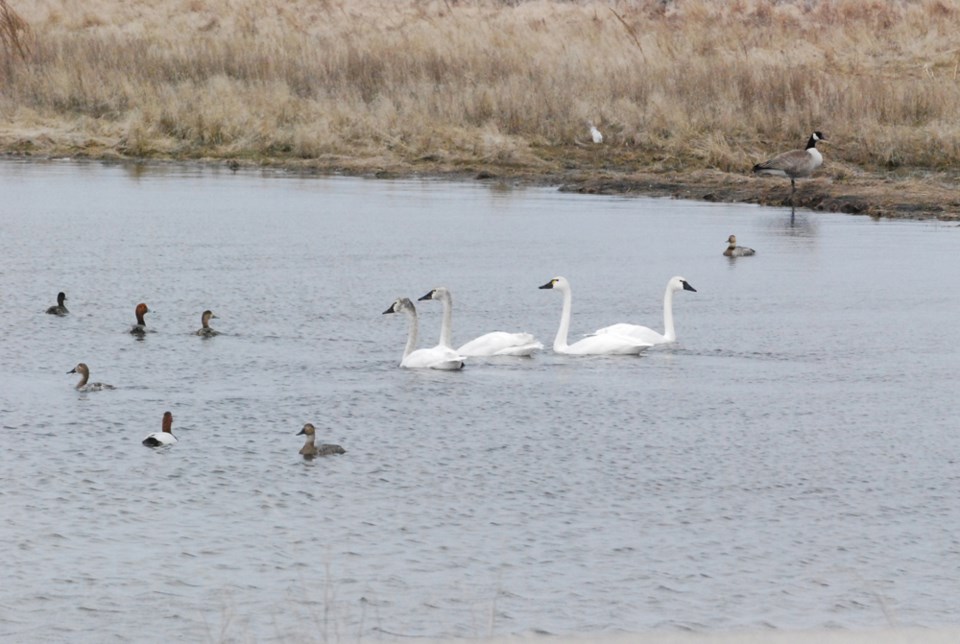All producers have that small piece of quarter section that is not very productive.
Regional Agrologist with Ducks Unlimited Canada, Paul Thoroughgood, announced at the Crop Production Show in Saskatoon that the new FlexFarm program will work with producers and from the RMs of Hoodoo, Three Lakes, and Humboldt on getting those acres back to being ecologically productive and will even pay producers for the land.
“They’re still generating income to their bottom line off those acres rather than losing money growing a crop on those areas that aren’t very productive.”
Unproductive acres can be turned back into a wetland if the area was previously drained or seeding back perennial cover if they are upland acres, says Thoroughgood.
The project is just in its pilot stages but Thoroughgood says that over 30-40 producers have already signed up for the program in the three RMs.
Thoroughgood says they will soon run into their cap on spending which is a positive sign for a pilot project.
“If we can sell the pilot out in the one week of the Crop Production Show, I think that’s great news.”
Especially with precision based technology and GPS mapping systems, producers know what areas of their fields are not making them money, says Thoroughgood.
The most an individual producer can contribute to the program is 30 acres from every quarter section, says Thoroughgood, and producers are receiving that limit rather well because it makes both environmental and economic sense.
“We wanted to target those smaller places that are eroding bottom lines and keep those other acres that are producing canola, wheat, that are productive land.”
Producers will receive an initial payout for their land and then annual payments to demonstrate a rental income.
Thoroughgood says that farmers can collect on all the ecological goods and services or they can retain them for further use or to sell it at a later time.
“It allows producers, if they feel that something might have more value outside of our program, they can still participate in the program but not fully participate and retain those ecological goods and services elsewhere.”
Thoroughgood says they are also trying to get agricultural industries on board as a way to offset their environmental costs and damage.
“They’re looking for a means to offset their impacts so this could be a mechanism they can work with.”
Even though the program is being launched in three RMs, Thoroughgood says they are interested to hear about program interest from outside those three RMS as well.
Thoroughgood says that they would like to build a list of interested producers to present a viable project when they move on and need more funding support, not only within Saskatchewan but also across the country.
“We’ve been taking expressions of interest from farmers across the province and we’ll be using those to demonstrate that there is interest in the program.”
This program could show agriculture as a solution to environmental issues instead of just a contributor, says Thoroughgood.




